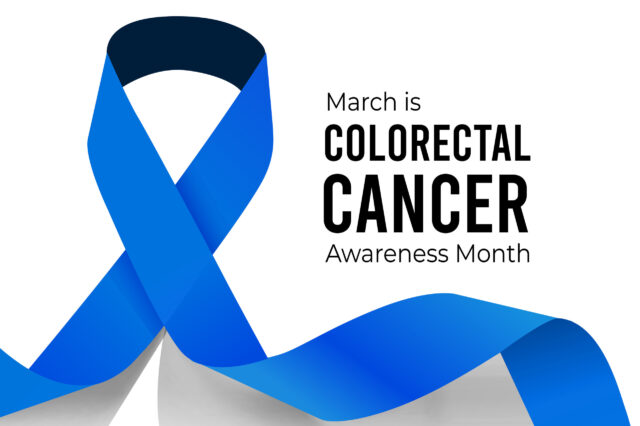Personalized Medicine
What is personalized medicine?
To “personalize” or identify the preferred treatment options for individual patients, doctors typically consider a patient’s health, family history and other factors such as diet or lifestyle.
Advances in science and technology have made it possible to add one more piece to the puzzle: genetic variations that influence how a patient responds to certain medicines.
In recent years, the U.S. Food and Drug Administration began revising labeling guidelines for certain medications to inform doctors and patients about genetic variations that can affect the body’s response to a drug. Screening for genetic variations can help patients receive the proper dosage, experience fewer side effects or avoid drugs that might not work well.
How is this approach being used at UF Health?
With oversight by scientific and medical experts, UF Health identifies medications for which it is beneficial to perform a blood test that provides genetic information indicating how a patient is likely to respond to a certain drug.
For patients, the genetic screening is no different than a typical blood draw. The behind-the-scenes difference is that one sample is sent to UF Health Pathology Laboratories to be tested for the presence of specific genetic variations that influence how the body responds to a particular drug.
Results are typically available within 24 to 48 hours and are added to the patient’s electronic medical record. If the results suggest a specific medication is not the preferred treatment option for an individual patient and a prescription for that medication is written, the electronic medical record system will alert the patient’s doctor and recommend alternate drugs.
Since June 2012, interventional cardiology patients treated at UF Health Shands Hospital are routinely screened for genetic variations that might affect how their bodies respond to a common anticlotting drug called clopidogrel, also sold as Plavix. Of the more than 1,000 patients who received results from this test during the first year of the program, approximately 28 percent have a genetic variation for which a different medication is recommended.
Over time, UF Health will incorporate routine genetic testing to guide prescriptions for additional drugs. In 2013, the program will focus on two medications: azathioprine for adult and pediatric gastroenterology patients with Crohn’s disease and other conditions; and mercaptopurine for pediatric cancer patients with acute lymphocytic leukemia.
How does UF plan to expand this approach?
Continued expansion of this approach to more patients and medications at UF Health will be overseen and approved by the hospital’s Pharmacy & Therapeutics Committee. Expansion will be guided by pharmacogenetic research, FDA advisories, physician requests and other factors.
In addition, the Personalized Medicine Program is conducting an ongoing research study to collect and screen DNA samples for a total of 256 genetic variations that are suspected of influencing how the body responds to medications, including those relevant to azathioprine, clopidogrel and mercaptopurine. If patients choose to participate in the study, UF will store their additional results in a secure database for future use in clinical care and research.
With funding from the National Institutes of Health, the Personalized Medicine Program also is collaborating to expand this approach to different types of health-care settings across Florida, including private cardiology practices affiliated with Orlando Health and community-based physician practices affiliated with the Florida State University College of Medicine.
The UF Health Personalized Medicine Program is led by the UF Clinical and Translational Science Institute. The program is funded by the National Institutes of Health’s National Human Genome Research Institute, National Center for Advancing Translational Sciences and National Institute of General Medical Sciences.
For more information
Contact Personalized-Medicine@ctsi.ufl.edu.
UF Health Personalized Care teams
UF Health Pathology Laboratories
Center for Pharmacogenomics and Precision Medicine
UF Center for Pharmacometrics and Systems Pharmacology
Our partners
- Florida State University College of Medicine
- NIH Genomic Medicine Pilot Demonstration Projects Network
- NIH Pharmacogenomics Research Network
- Orlando Health
Other resources
Our experts
Clinical Trials: Personalized Medicine
UF Health research scientists make medicine better every day. They discover new ways to help people by running clinical trials. When you join a clinical trial, you can get advanced medical care. Sometimes years before it's available everywhere. You can also help make medicine better for everyone else. If you'd like to learn more about clinical trials, visit our clinical trials page. Or click one of the links below:
This study will examine the effect of having genotype information on pain management and pain control for patients treated in family medicine clinics. This study will also examine physician-perceived usefulness of genotype information. Patients will…
- Investigator
- Larisa H Cavallari
- Status
- Accepting Candidates
- Ages
- 18 Years - 80 Years
- Sexes
- All
News and Patient Stories: Personalized Medicine
UF Health researchers find new method to use MRIs to delve into secrets of brain aging
April 15, 2024
GAINESVILLE — Life experience continually shapes the health of the human brain, for better or worse, like a bank receiving a lifetime of deposits and…
College of Dentistry, Institute on Aging, +2 more

Colorectal Cancer: A New Tool for Patient-Tailored Care
Colorectal cancer, which occurs in the large bowel in the digestive system, represents one of the most common cancers in Florida and across the United States.…

